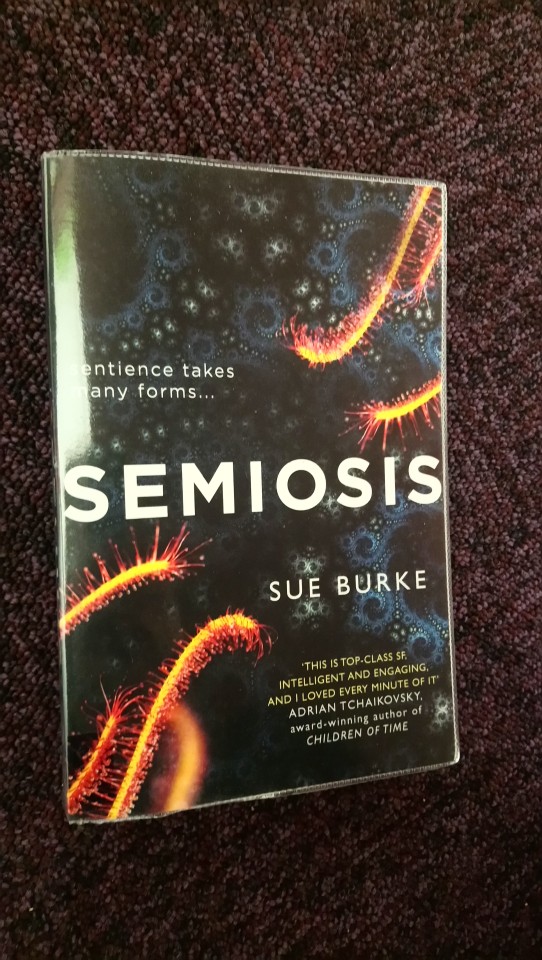

A way of just writing the good parts, you know? It ended up working out in the end, but it was one of my least favorite aspects of Semiosis.

It was like the author used them to move past the parts of the story that she didn’t know how to handle. The time skips were a little bit weird because there was no real order to do them. So, yeah, the fact that several generations down the road there’s no visible signs of issues there gives me a little bit of pause. And then additional complications are brought into play. There were some balances put in place initially, but they’re done away with fairly early on. Assuming an equal distribution of males to females, and fertility for all, that’s still not really a firm ground for genetic diversity to avoid inbreeding and stuff.

For example, at one point there’s a super small amount people on Pax. There are aspects of Semiosis that don’t make a lot of sense, but you can put them aside for the sake of the story. I can’t say I outright loved the book, but I actively wanted to finish it – and that’s been difficult for me to do lately. However, my affection for the book would gain ground again just a few chapters later. I started out loving the book because of the sheer imagination displayed, but was pretty sure at some points that I was going to end up hating it. Semiosis was an odd book that evoked many different emotions.


 0 kommentar(er)
0 kommentar(er)
